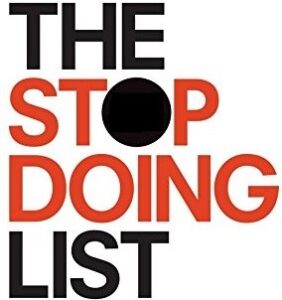By Rose O. Sherman, EdD, RN, NEA-BC, FAAN
Peter Drucker, considered the father of modern management theory, frequently talked about the problem leaders have in making decisions to stop doing things. The default in healthcare is to keep adding more. Addition addiction is a real problem today that frontline nurse leaders frequently discuss. Professionals are often asked to pick up more tasks and responsibilities. These incremental changes add up over time. When new staff assume roles, they do not have the luxury of assuming role responsibilities gradually. The outcome is that new staff feel overwhelmed with what they are expected to learn and do.
When preparing my keynote for last year’s AONL conference, I conducted five focus groups with frontline nurse leaders nationwide. They repeatedly talked about the scope creep in their roles and those of the staff. The default always seems to be that nurses are there with the patients, so add it to their role. Jeff Mills, a CNO who worked with me on conducting focus groups with frontline leaders, noted that a great question in response is – well, if nursing were not the solution to this problem, how would we get this done?
So, how do we stop this addiction? I think the answer is to require that when something is added, something else is subtracted. But to do that, you need to discuss with staff what could be eliminated. The following are some good discussion points to have with nurses today:
- What parts of our care could we eliminate or reduce and lose little value to the patient?
- What aspects of our nursing role could a staff member with less expertise do?
- What are your role’s five most consuming parts, and how can we streamline or eliminate them?
- What redundancies in our current processes could we eliminate to save staff time?
- Are the emerging technologies that we are using consuming or saving time? Can we start demanding that all new technologies we purchase integrate seamlessly and put data into the EMR?
- Are we leveraging our electronic health records to their fullest potential, or are we slaves to documentation?
- What can we do to streamline communication in our system?
- Are our processes too complicated? How could they be streamlined without compromising safety?
Today, we know that the burden of documentation on clinicians is one of the most serious problems in healthcare. Those present during the introduction of electronic medical records probably remember all the promises about how these records would save time. Instead, they have become a prime example of addition addiction.
Several nurse leaders recently discussed their unhappiness with EPIC’s (the largest EHR provider in the US) failure to take responsibility for reducing the documentation burden on staff in conversations with me. The solution they report is always purchasing another product—why should that be, and why don’t they take a page from the Apple playbook? We need to have these conversations in healthcare today as resources become tighter and clinician workforce shortages grow.
© emergingrnleader.com 2025
Two Brand New Workshops for Your Team in 2025
Building Bridges Not Walls: Leading Multigenerational Work Teams – Click Here for More Information Building Bridges Not Walls
Nurse and Nurse Leader Work-Life Balance and Well-Being: Nursing Leadership Strategies for Success – Click Here for More Information WorkLife Balance and Wellbeing WS
Our Most Popular Right Now The New World of Work Workshop
Coming March 17th, 2025




 LinkedIn
LinkedIn Instagram
Instagram